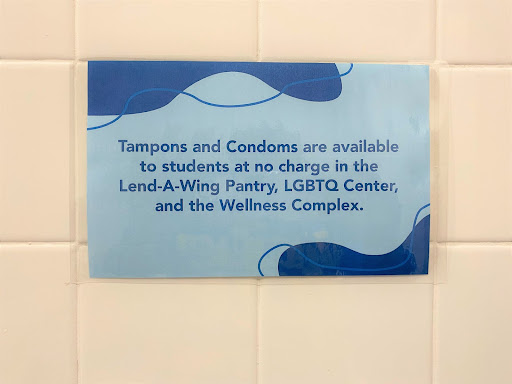College is a well-known place of exploration in various aspects of young adult life, including sexual activity. It’s important to educate yourself on the practices of safe sex, especially if you are sexually active. Spinnaker asked a few University of North Florida (UNF) health professionals to give tips on how to stay cautious and feel secure within your sex life.
“Educate yourself,” UNF Sex Therapist Dr. Robert J. Zeglin says. “Figure out what type of sex you want to be having. Figure out what it is you like, enjoy, desire, fantasize about and then go properly – don’t just google it – educate yourself on what that entails.”
He continues to say that whatever it is you want, you should not only consider pregnancy risks, STI risks and relationship factors but also factors related to consent too.
Dr. Zeglin worries sometimes that when we say “consent,” people only think about sexual assault when there are tons of sexual behaviors and desires that require negotiation of consent.
“It’s not just sexual assault when consent is an issue. Consent is always something that should be talked about and navigated,” he explains.
If you feel like you haven’t been taught or learned the language necessary to navigate consent, the Women’s Center could be a good resource for that.

An important part of sexual wellness is being able to recognize your sexuality and desires and being able to move through life in a way that helps you satiate those as safely as possible.
Although, there is no such thing as safe sex, according to Dr.Zeglin. There’s safer sex, but all sexual activity has risks.
“Even if you have sex that involves a penis and that penis has a condom on, there’s still STIs that can be transmitted through skin-to-skin contact that the condom yes reduces the risk of, but it’s still there,” Dr. Zeglin explains.
Some folks engage in oral sex as a way of avoiding STIs, but you can still get several STIs in your throat, including HPV in the throat. That’s where the importance of thoroughly educating yourself comes in.
To “have the conversation” is one of the first steps college students can take toward practicing safe sex, UNF Advance Practice Registered Nurse Amy Howell says. “Decide ahead of time if you want to have sex with someone and ask about their sexual history.”
“How many partners have they had and have they ever had an STI, do they use condoms and have they been screened?” are some examples of questions you can ask them, Howell shares.

Barrier protection, such as condoms and dental dams, are some examples of contraceptives.
“Nothing substitutes for this protection,” Howell explains.
For any clarity you might need, UNF has many resources available to students.
“Resources on campus include Student Health Services, where you can get information, screening, exam and treatment,” Howell shares. “Also the Women’s Center, LGBTQ Resource Center and various events offered by Jasmyn, our local community partner.”
Student Health Services offers confidential sexually transmitted disease (STD) screening and treatment at a “nominal” cost to students. HIV testing can be scheduled by calling (904) 620-1570 for an anonymous appointment.

Students can find free condoms and other contraceptives in the RecWell Business Office, Lend-A-Wing Pantry and LGBTQ Center.
“Even if you’re not a part of the LGBT community, I absolutely endorse the LGBTQ center as a place to start for sexual health questions,” Dr. Zeglin says. “They are gonna be helpful no matter what.”
According to Dr. Zeglin, the website Scarleteen is also really helpful and written in a way that’s very easy to consume. “You’re not gonna feel like you’re reading a medical textbook when you’re on Scarleteen, so I highly recommend that as well.”
The website, as well as UNF’s on-campus resources, are very inclusive and have information on many topics for young adults – perfect for college students.
___
For more information or news tips, or if you see an error in this story or have any compliments or concerns, contact editor@unfspinnaker.com.
















